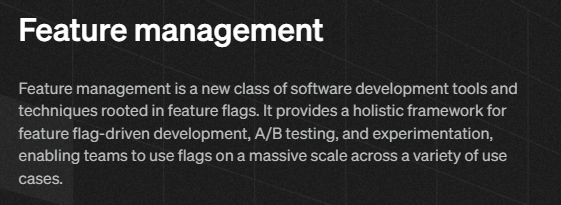- cross-posted to:
- brainworms@lemm.ee
- cross-posted to:
- brainworms@lemm.ee
Not sure if this is a good place for this post or not, but here goes.
I reject outbound connections to meta domains at the firewall. I noticed this banking app refuses to prompt for login credentials unless I am on mobile or a public WiFi network. I watched my FW logs and noticed many rejected connections to graph[.]facebook[.]com.
I contacted their support team, but they denied the connection was their app. I shared the screenshot on this post and they closed my case without comment.
I emailed the address on the Google play store and they also denied the connection was their app. I shared the screenshot and they asked if I downloaded the app from the play store, implying the official app doesn’t do this, but of course it does.They closed my case without proper resolution as well.
Just thought I’d share this here so people know that some banks make direct connections to Facebook to share analytics, without your knowledge or informed consent, and they lie about it when called on it.
It’s probably NTP a lot of banking apps have extra protections and if it can’t determine the time from its own trusted authority it may not allow the connection.
Launchdarkly is likely a culprit as well. Just doing a background search reveals that the service allows dev teams to do A/B testing, enable new features without releasing a new version, and various other “dynamic” functions.

OP is on the wrong side of Occam’s razor
This is definitely probably it. I can’t believe more things aren’t broken by blocking launchdarkly
If you set it up correctly it defaults to a specific flag state if it can’t connect. I.e. always show the user the old treatment instead of the new if you can request the actual state of their enrollment.
They get blocked constantly and my old company just routed the requests through our domain so they’d stop getting blocked
I think you underestimate how shitty software can be.
When I worked at IBM and was between service delivery contracts to other clients, I had to use Lotus SmartSuite.
I have it blocked in NextDNS haven’t seen any issues in 4 years without it. Blocking ntp.org has definitely caused issues especially with IOT devices.
how would that explain connection to facebook?
It is not only Facebook that is been block if you take the time to read the log you will see the NTP connection is being block too.
The app in the screenshot is just capturing packets. The list shown are connections made during the capture and closed just means the connection is not currently active.
That said, I downloaded Ally, ran that same packet capture but never saw anything sent to Facebook. I got to the login screen just fine.
It doesn’t.
OP is claiming that disallowing the connection to Facebook is stopping the log in, but it might be blocking the connection to the ntp server instead.
It doesn’t, the implication is that it’s not the connection to FB what’s making the app not work, but the lack of NTP sync.
Plenty of apps reach out to FB for widgets, or those stupid “share your experience with your friends” buttons that no one uses … that’s why we block them in the first place.
Ads & Analytics, like most things.
https://developers.facebook.com/docs/graph-api/overview/
Wouldn’t surprise me if there’s an in-app ad / self promotion / community announcements / et al that is managed via FB’s Graph API
Is it normal that a bank app tries to connect to meta?
Meta provides a lot of other backend B2B services beyond just Facebook, Instagram, and Threads.
You think that’s the only way they have of scarfing down data? Absolutely not, they make other useful tools as well that businesses can use, because if they can’t get their info directly from you, they can get it from the people you have to regularly interact with instead.
This is gross… but also not something I’ve really thought about.
You better start thinking about it.
A lot of companies have massive backend services they don’t really advertise. Amazon makes most of its profits from AWS which is pretty much the primary distribution hub of the entire Internet.
It’s yet another reason why folks who suggest boycotts instead of legislative solutions to corporate abuse are deluding themselves.
The implication is that OP’s assessment is incorrect and the blocked requests to launchdarkly are what’s preventing them from logging in. The Facebook requests don’t show a source so they could be from another device.
When I unblock the Facebook address, the app opens as expected.
I’m not blocking any NTP. My home servers rely on it (just TrueNAS checks time every 3 minutes…), but I do block DNS outbound to force using my own DNS.
You are blocking NTP though. Look at your image, all the way at the bottom.
I do block DNS outbound to force using my own DNS.
This doesn’t make sense. Blocking outbound DNS is effectively blocking everything, as you can see if your screenshot. Launchdarkly and NTP are both “closed”. Did you look at your own screenshot?
Do you know how DNS works?
I’m going to assume that hopefully OP knows how DNS works and meant he blocks all outbound DNS requests from his devices and sets a specific DNS for his external queries from his FW/Router. I do the same thing.
However, he is blocking NTP right there so who knows.
PCap is just a packet capture. “Closed” in this context just means the connection is no longer currently active.
So I just tested this. I’m not at home so I had to VPN in which is no issue.
- I opened graph.facebook.com and confirmed it was working
- I opened and logged in to my Ally app
- I added graph.facebook.com to my pi-hole’s black list as a regex entry
- I opened graph.facebook.com in the browser and confirmed it was blocked
- I force closed and cleared the cache on my Ally app
- I opened and logged in to my Ally app
It’s not the Meta connection that’s giving you trouble.
I added graph.facebook.com to my pi-hole’s black list as a regex entry
Yes, but did you clear the DNS cache on your device after doing this? Once the DNS lookup is done it doesn’t matter what you’ve done on your pihole. The IP is cached and pihole will not even see the query.
It’s a fair point but I’ve got two counters.
-
It was blocked in the browser, which implies there’s not a cached record for it on the device
-
The Pi-hole logs the queries it receives and I do have four separate entries for that URL today, spaced in an amount of time that does not imply automatic requests but does likely match up with my test cases.
I’ll just point out that I have tracker blocker running on my rooted Android at all times, graph.facebook.com is blocked across all apps on the device, Ive made sure of this. For maybe the 3 or so years I’ve been running it like that, I’ve very, very seldomly found an app that fails if it can’t reach Facebook, though many try.
-
Something else is going on with your setup, I block
graph.facebook.comvia DNS too and Ally works fine, both app and browser.Your screenshot looks like you’re also blocking ntp.org which could definitely screw with a banking app, and launchdarkly.com may also be the problem if they’re loading assets from that service.
LaunchDarkly essentially just serves up true/false values for services to grab. It can be useful to update code functionality without having to rebuild / recompile. However, any service that uses the launch darkly API should have a default state for their values to fall back on, so it shouldn’t cause any major issues if LaunchDarkly can’t be reached.
That makes sense, I don’t block that domain on my setup so I’m not sure if it matters or not.
Try unblocking the ntp.org connections.
I know a software developer that worked for Ally when they were adding this. They all said it was a terrible idea, but were ignored. The reason they claim it’s needed is to track app installs that originate from an ad on Facebook. Since the App Store sits in between the ad click and App launch, there isn’t an easy way to track it without that. But, it shouldn’t be blocking you from logging in.
I’d bet you bottom dollar Ally is selling their customers’ financial information to Meta, and this is a manifestation of that.
I wouldn’t doubt it.
Might not even be selling it, could just be an arrangement to use some sort of “sign in with facebook” service or even advertise on facebook marketplace/adverts
So you see, Your Honour, we didn’t sell Facebook any data - we just sold Facebook the ability to harvest our users data directly.
I remember we had to build an obj-c wrapper for FB’s calls like these because of these crashes, that basically ignored the stall and continued the user’s session regardless
Since the App Store sits in between the ad click and App launch, there isn’t an easy way to track it without that.
How does that work exactly? Does the App Store pass along some information to newly installed apps or something? My company’s app, which I worked on for some time, also uses an external service to track installs (not Facebook or any social media), but I didn’t work on the implementation of it and never really got to grips on how it works.
App store doesn’t, the app itself does, that’s why this thing is included in it.
-
You click an ad on FB = you’re ID’d by a cookie or login or account on the device or fingerprint or whatever (probably all of the above)
-
You install the app from app store. Neither the bank or FB knows this.
-
You launch the app. The integrated FB library reads the cookie or FB account on the device or whatever it can, and pings FB. FB compares this ID to the entries and finds that it was you who clicked the ad.
-
FB bills bank for an ad click
Another option is there to be a specific FB variant of the app with its own app store entry, but they probably wouldn’t do that for something this trivial.
-
That’s a good question and I’m not entirely sure. I am just saying what they told me. Sorry!
Unless you have a secondary timeserver set up, blocking pool.npt.org is going to mess up a lot of programs that are dependent on time.
I think the screenshot is just showing connections the app’s made, not necessarily blocked ones. I doubt any blocklist would contain pool.ntp.org
Correct. Closed here just means the connection isn’t ongoing.
True, here I redirect every NTP request to my own timeserver
File a complaint with the government. I’m not sure which agency, but there is definitely one for that.
deleted by creator
Not in the US there isn’t
Your screenshot does not really show anything other than the fact that Ally attempts a connection to Facebook (it’s not even clear how it was blocked). You can see the amount of people telling you to unblock NTP, which you stated isn’t blocked - that’s a clear sign that you haven’t presented you data in an easy to review format.
Why not show what exactly is blocked by the firewall, how the rules are configured, and disabling which rule exactly gets the app to work? E.g., if you block Facebook by redirecting to your own HTTP server that responds, the app may decide to bork because of a failed certificate validation - resolve the Facebook domain as NXDOMAIN in your DNS, and see if that helps.
The fact that they use Facebook APIs is infuriating, regardless.
According to Exodus Privacy (they analize mobile apps for trackers), Ally only contains Amazon and Google trackers (Google Firebase Analytics is used by almost all apps): https://reports.exodus-privacy.eu.org/en/reports/com.ally.MobileBanking/latest/
Others also say their Ally app doesn’t connect to Facebook. Maybe you have a Unicorn or a modified app (rather unlikely though)?
Maybe the app uses a WebView for login which itself includes a webpage with the tracker. It would be possible that the page’s content and trackers change without any change in the app.
Unicorn?
Somehow they might got a special version of the app. Really really unlikely though, it’s probably just A/B testing or false logs.
Ah, I see.
If they do any sort of Facebook login/auth, frequently facebook will require them to send them data about ANYONE who is using their site.
I’ve never seen a bank do any social auth
It might be that they made the app fail if any of their outbound connections fail. This is very reasonable, as ideally the only calls the app should be making are the ones it needs to make to facilitate this functionality. So if connections fail, the functionality of the app can massively bork, potentially resulting in poorer customer service than if they simply showed a failure screen.
What’s less reasonable is why graph.facebook.com is one of them. Why on earth would they be sending the most sensitive data of their clients to the least trustworthy of corporations?
Why do you block LaunchDarkly?
So this post prompted me to check my app connections (on iOS btw) and I realized I didn’t have NextDNS set 😓. It connects to a lot of Google domains and others, but not Facebook on my end.
Yeah that seems pretty gross.
I don’t think it’s that connection causing problems, mainly because my app works fine (mostly) and I don’t have a connection to any meta services. There are none on my phone, and I do not have a Facebook login at all. I will say that of all the apps I use, Ally is the most finicky. It seems to crash itself every 2-3 uses for no apparent reason at all.
That said, it seems unlikely that the app would fail for you in this case just because you blocked access to a service that I know it does not actually require to operate (because it has to be operating without it on my phone), and another poster tested and could not recreate. Not sure if that helps, but may point you towards diagnosing what is really causing the issue!


















